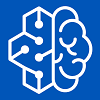5th International Workshop on Analytics for Service and Application Management
(AnServApp 2025)
SCOPE
With enterprise organizations generating petabytes of data each day, their use of, and reliance on data analytics to provide contextual insight into their operations is imperative for improving the implementation, management and delivery of services and applications. Approaches such as predictive data analytics, data mining, machine learning and deep learning are promising mechanisms to harness this immense stream of service and application data to meet the needs of an organization. The main goal of AnServApp is to present research and work-in-progress results in the area of data analytics, machine learning and cognitive science for service and application management. In addition to regular papers, short papers describing late-breaking advances and work-in-progress reports from ongoing research are also welcomed.
PROGRAM
Monday, October 27 9:00 - 10:10
The journey towards data-driven security: Insights from 15 years of research in Critical Infrastructure Protection
- Tiago Cruz (Associate Professor at the Department of Informatics Engineering of the University of Coimbra, Portugal)
Monday, October 27 10:10 - 10:30
AnServApp workshop: Detection of Device Dependencies
Chair: Pal Varga (Budapest University of Technology and Economics, Hungary)
Fast and Configurable Detection of Device Dependencies in Network Traffic
Monday, October 27 11:00 - 12:30
AnServApp workshop: Graph models and LLMs in network management
Chair: Adrián Pekár (Budapest University of Technology and Economics, Hungary)
Structural Vulnerability of Greedy Routing in Hyperbolic Embedded Networks
Beyond TimeGraph: A Comparative Analysis of Temporal Generators for Evolving Network Graphs
Towards Efficient Fine-Tuning of LLMs in Edge-to-Cloud Environments
Monday, October 27 13:30 - 15:00
AnServApp workshop: AI-driven Service Management
Chair: Muge Sayit (University of Essex, United Kingdom)
Using Network Digital Twin Visualization for Application Traffic Engineering
On the Feasibility of Inter-Flow Service Degradation Detection
An Empirical Study of a PCA-Based Multivariate Framework for Interpretable Log Anomaly Detection
Investigating Neurosymbolic AI for Intent-based Service Management
Monday, October 27 15:30 - 17:00
AnServApp workshop: Cloud Networking, Orchestration, and Architectural Security
Chair: Gianluca Davoli (University of Bologna, Italy)
Bridging Time-Sensitive Networking and Containerization: Challenges and Strategies
Queueing-Based Performance Analysis of 5G Service Function Chains
A Microservice-Based Framework for Multi-Domain SDN Orchestration through Controller Decomposition
PERA-Pay: A Power-Efficient and Robust Architecture for NFC Payment Systems
TOPICS OF INTEREST
Topics of interest include but are not limited to:
- AI/ML/DL powered solutions
- Digital Twins for networks and services
- Intent-based network management
- Multi-Agent Reinforcement Learning (RL)
- Distributed RL over communication networks
- Network and service security
- Resource management & orchestration
- Application Management Services (AMS)
- Ticket resolution and management
- Event log analysis
- Knowledge management
- Workload optimization
- Sentiment analysis
- Social media
- Lower carbon foot print applications / services / systems
- Smart cities and smart transportation services / systems
- Industry5.0 services and data analytics, predictive maintenance, asset tracking
- Social media apps / services / systems
- Smart education services / systems
- Edge, fog, cloud services / systemsSustainability and resilience of applications / services / systems

WORKSHOP CO-CHAIRS
Pal Varga, Budapest University of Technology and Economics, Hungary -- pvarga ((at)) tmit.bme.hu
Nur Zincir-Heywood, Dalhousie University, Canada -- nzincirh ((at)) dal.ca
TECHNICAL PROGRAM COMMITTEE
Adel El-Atawy, Google, USA
Andreas Johnsson, Ericsson Research, Sweden
Ashiq Anjum, University of Leicester, UK
Ayse Bener, Ryerson University, Canada
Emir Halepovic, AT&T, USA
Filippo Poltronieri, University of Ferrara, Italy
Francesca Fossati, Sorbonne Université, France
Giuliano Casale, Imperial College London, UK
Jaime Galàn-Jimènez, University of Extremadura, Spain
Jaime Llorca, New York University, NY, USA
Jozsef Biro, Budapest University of Technology and Economics, Hungary
Kristina Dzeparoska, University of Toronto, Canada
Laurent Ciavaglia, Nokia, France
Marco Zambianco, FBK, Italy
Mauro Tortonesi, University of Ferrara, Italy
Philip Tee, University of Sussex and Moogsoft Inc, USA
Rita Orji, Dalhousie University, Canada
Ritu Chadha, Vencore Labs, USA
Roberto Rodrigues Filho, Federal University of Santa Catarina, Brazil
Sandrine Vaton, IMT Atlantique, France
Sidath Handurukande, Center for Innovation – Accenture, Ireland
Steven Latré, University of Antwerp - iMinds, Belgium
Taghrid Samak, Google, USA
Takeru Inoue, NTT, Japan
Tiago Cruz, University of Coibra, Portugal
Tim Wauters, University of Ghent, Belgium
Una-May O'Reilly, MIT, USA
Yu Deng, IBM, USA
PAPER SUBMISSION AND FORMAT
Authors are invited to submit original unpublished papers not under review elsewhere. Papers should be submitted in IEEE 2-column format. Maximum paper length, including title, abstract, all figures, tables, and references, is 6 pages.
Papers have to be submitted electronically in PDF format through the EDAS conference management system, accessible via: https://edas.info/N34164
For accepted papers, at least one author is expected to register and present the paper in person at the workshop. Accepted papers will be published in the conference proceedings and submitted to IEEE Xplore.
IMPORTANT DATES
Paper Submission Deadline: August 31, 2025 (final)
Notification of Acceptance: September 8, 2025
Submission of Camera-ready Version: September 16, 2025
Conference Date: 27-31 October 2025

